General elections were held in Luxembourg on 21 October 1945. [1] They were the first elections held after the German occupation during World War II. As a result of the war, the political alliances of the interwar period had been ended. In their place were new parties; the Christian Social People's Party, the Luxembourg Socialist Workers' Party, and the Patriotic and Democratic Group in place of the Party of the Right, Socialist Party, and Radical Liberal Party respectively. It is regarded as a realigning election, as the election established the party political order, with four established parties, that would be maintained until 1974.

Luxembourg, officially the Grand Duchy of Luxembourg, is a small landlocked country in western Europe. It is bordered by Belgium to the west and north, Germany to the east, and France to the south. Its capital, Luxembourg City, is one of the three official capitals of the European Union and the seat of the European Court of Justice, the highest judicial authority in the EU. Its culture, people, and languages are highly intertwined with its neighbours, making it essentially a mixture of French and German cultures, as evident by the nation's three official languages: French, German, and the national language, Luxembourgish. The repeated invasions by Germany, especially in World War II, resulted in the country's strong will for mediation between France and Germany and, among other things, led to the foundation of the European Union.
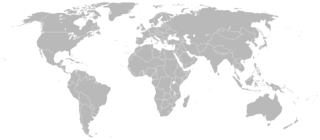
In the context of the history of the 20th century, the interwar period was the period between the end of the First World War in November 1918 and the beginning of the Second World War in September 1939.

The Christian Social People's Party, abbreviated to CSV or PCS, is the largest political party in Luxembourg. The party follows a Christian-democratic ideology and, like most parties in Luxembourg, is strongly pro-European. The CSV is a member of the European People's Party (EPP) and the Centrist Democrat International (CDI).
The conservatives remained the dominant faction, and the Christian Social People's Party's leader, Pierre Dupong, was invited to head another government. The election was also a success for both liberal and communist candidates, with both the Patriotic and Democratic Group and the Communist Party gaining four more seats than in the last election before the war. [2] To restore political stability, Grand Duchess Charlotte asked Dupong to create a more broad-based coalition than the preceding Liberation Government. The resulting National Union Government would embrace all four political parties, and also include the solitary independent, guaranteeing the support of the whole Chamber of Deputies. The government remained in place until 1947.

Pierre Dupong was a Luxembourgish politician and statesman. He was the 16th Prime Minister of Luxembourg, serving for seventeen years, from 5 November 1937 until his death, on 23 December 1953, and was also responsible at different times for the ministries of finance, the army, agriculture, labour and social matters. He founded the Christian Social People's Party (CSV) as the main conservative party after the Second World War, having been a founding member of the Party of the Right (PD) in 1914.
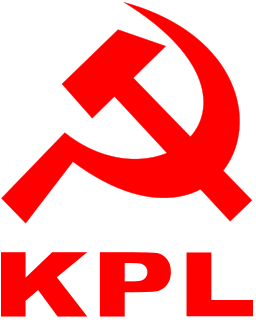
The Communist Party of Luxembourg, abbreviated to KPL or PCL, is a communist party in Luxembourg.
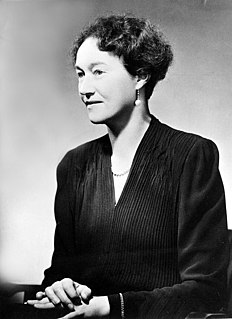
Charlotte reigned as Grand Duchess of Luxembourg from 1919 until her abdication in 1964.
A national unity government, government of national unity, or national union government is a broad coalition government consisting of all parties in the legislature, usually formed during a time of war or other national emergency.

The Luxembourg Socialist Workers' Party, abbreviated to LSAP or POSL, is a social-democratic political party in Luxembourg. The LSAP is the second-largest party in the Chamber of Deputies, having won 13 of 60 seats at the 2013 general election, and has one seat in the European Parliament. The LSAP is currently part of the Bettel–Schneider government, with Etienne Schneider of the LSAP serving as Deputy Prime Minister. Since March 2014, the party's President has been Claude Haagen.

General elections were held in Luxembourg on 13 June 2004, alongside European Parliament elections. The ruling Christian Social People's Party (CSV) of Prime Minister Jean-Claude Juncker won the election, increasing its number of seats to its highest since before 1989 and its share of the vote to levels not seen since the 1959 election.

General elections were held in Luxembourg on 13 June 1999, alongside European Parliament elections. The Christian Social People's Party remained the largest party, winning 19 of the 60 seats in the Chamber of Deputies. It formed a coalition government with the Democratic Party.

General elections were held in Luxembourg on 12 June 1994, alongside European Parliament elections. The Christian Social People's Party remained the largest party, winning 21 of the 60 seats in the Chamber of Deputies. It continued the coalition government with the Luxembourg Socialist Workers' Party.

General elections were held in Italy on 28 April 1963, to select the Fourth Republican Parliament. It was the first election with a fixed number of MPs to be elected, as decided by the second Constitutional Reform in February 1963. It was also the first election which saw the Secretary of Christian Democracy to refuse the office of Prime Minister after the vote, at least for six months, preferring to provisionally maintain his more influent post at the head of the party: this fact confirmed the transformation of Italian political system into a particracy, the secretaries of the parties having become more powerful than the Parliament and the Government.

General elections were held in Italy on 20 June 1976, to select the Seventh Republican Parliament. They were the first after the voting age was lowered to 18.

General elections were held in Italy on 26 June 1983, to select the Ninth Republican Parliament. The Pentaparty formula, the governative alliance between five centrist parties, caused unexpected problems to Christian Democracy. The alliance was fixed and universal, extended both to the national government and to the local administrations. Considering that the election result did not longer depend by the strength of the DC, but by the strength of the entire Pentapartito, centrist electors began to look at the Christian Democratic vote as not necessary to prevent a Communist success. More, voting for one of the four minor parties of the alliance was seen as a form of moderate protest against the government without giving advantages to the PCI. Other minor effects of this election were a reduction of the referendarian Radical Party and the appearance of some regional forces.
General elections were held in Luxembourg on 7 June 1964. Despite receiving fewer votes than the Luxembourg Socialist Workers' Party, the Christian Social People's Party remained the largest party, winning 22 of the 56 seats in the Chamber of Deputies.
General elections were held in Luxembourg on 15 December 1968. The Christian Social People's Party (CSV) remained the largest party, winning 21 of the 56 seats in the Chamber of Deputies.
General elections were held in Luxembourg on 26 May 1974. The Christian Social People's Party remained the largest party, winning 18 of the 59 seats in the Chamber of Deputies. However, it went into opposition as the Luxembourg Socialist Workers' Party and Democratic Party formed a coalition government under prime minister Gaston Thorn.
General elections were held in Luxembourg on 10 June 1979. The Christian Social People's Party remained the largest party, winning 24 of the 59 seats in the Chamber of Deputies. After spending the previous four years in opposition, it returned to government in coalition with the Democratic Party, resulting in the Werner-Thorn Ministry.

General elections were held in Luxembourg on 17 June 1984. The Christian Social People's Party remained the largest party, winning 25 of the 64 seats in the Chamber of Deputies. It formed a coalition government with the Luxembourg Socialist Workers' Party, the Santer-Poos government.

General elections were held in Luxembourg on 18 June 1989. The Christian Social People's Party remained the largest party, winning 22 of the 60 seats in the Chamber of Deputies. It continued the coalition government with the Luxembourg Socialist Workers' Party.

General elections were held in Italy on Sunday, 2 June 1946. They were the first after World War II and elected 556 deputies to the Constituent Assembly. Theoretically, a total of 573 deputies were to be elected, but the election did not take place in the Julian March and in South Tyrol, which were under military occupation by the United Nations.
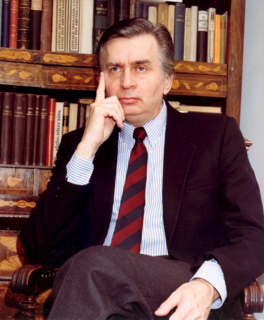
The 1990 Hungarian parliamentary elections were held in Hungary on 25 March 1990, with a second round of voting taking place in all but five single member constituencies on 8 April. They were the first completely free and competitive elections to be held in the country since 1945, and only the second free elections in the country's history. The conservative, nationalist Hungarian Democratic Forum (MDF) beat the liberal and more internationalist Alliance of Free Democrats, which had spearheaded opposition to Communist rule in 1989, to become the largest party in parliament. The Hungarian Socialist Party, the former Communist party, suffered a crushing defeat, winning only 33 seats for fourth place.
A referendum on the Order law was held in Luxembourg on 6 June 1937. Voters were asked whether they approved of the new law, which would ban any political party that sought to change the constitution or national legislation by violence or threats. The law would result in the dissolution of the Communist Party, and became known as the Maulkuerfgesetz.
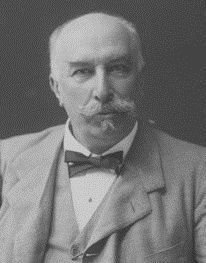
General elections were held in Italy on 26 October 1913, with a second round of voting on 2 November. The Liberals narrowly retained an absolute majority in the Chamber of Deputies, while the Radical Party emerged as the largest opposition bloc. Both groupings did particularly well in Southern Italy, while the Italian Socialist Party gained eight seats and was the largest party in Emilia-Romagna. However, the election marked the beginning of the decline of Liberal establishment.
The Dupong-Schaus Ministry was the government of Luxembourg between 1 March 1947 and 3 July 1951. It was a coalition between the Christian Social People's Party (CSV), and the Democratic Group.
The Liberal Party was a political party in Luxembourg in the 1930s and 1940s.















